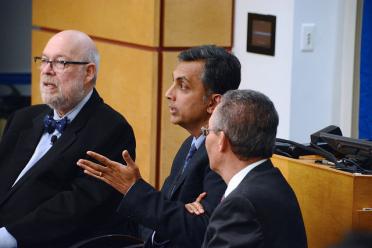
Why Do We Need Tax Reform?
Currently, the United States has one of the highest effect corporate tax rates in the world. According to Michael J. Graetz, “In an international economy, the deductions birds flock to the country with the highest tax rate, and the income birds flock elsewhere. We're attracting deductions for royalties and interest rates and other countries are attracting income.” This tax system that is in place is not conducive to investment in the United States. There is downward pressure on corporate tax rates across the board. However, the question is now is about what the tax reform plan will look like.
Is a 20% Corporate Tax Rate Reasonable?
Now Washington has a chance to revamp corporate tax policy all over again, and politicians are floating two distinct tax reform plans. As explained by Alex Raskolnikov, a professor of tax law at Columbia Law School: “We can A-Reduce the tax rate—which is what President Trump said he wanted, although he hasn't provided any details lately—or B-Repeal the corporate tax—bring the rate to zero and replace it with a variation on a consumer tax, which is what the Republicans proposed last summer.”
The structural system changes that lowers tax rates in some instances also switches the United States to a territorial system of taxing foreign income.
Beyond President Trump's indication that he would like to see a 15 percent corporate tax rate, President Obama proposed a 28 percent tax, and the current House proposal suggests a tax rate of 20 percent.
Will the US repatriate $2.6 Trillion in Foreign Income?
In answer to a corporate tax system that is out of synch with the rest of the world, multinational companies have created a slew of vehicles that shift income to cheaper tax jurisdictions. A case in point is inversions, or the purchase of foreign parent companies, which allows businesses to headquarter in relative tax havens.
Band-aids haven't helped the government to recover much corporate profit abroad. In 2004, Congress created the Homeland Investment Act, a one-time holiday that taxed repatriated corporate profits at just 5 percent. Although the windfall was structured as an investment bonanza (companies were supposed to use that income to build and create jobs), the $300 billion or so that flooded back to the United States went almost exclusively to shareholders in the form of dividends, share buybacks and M&A.
